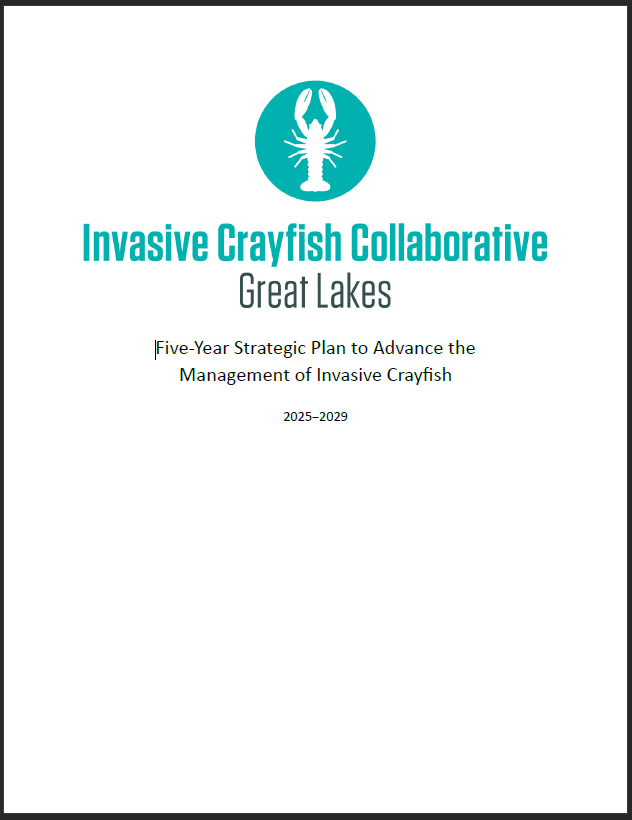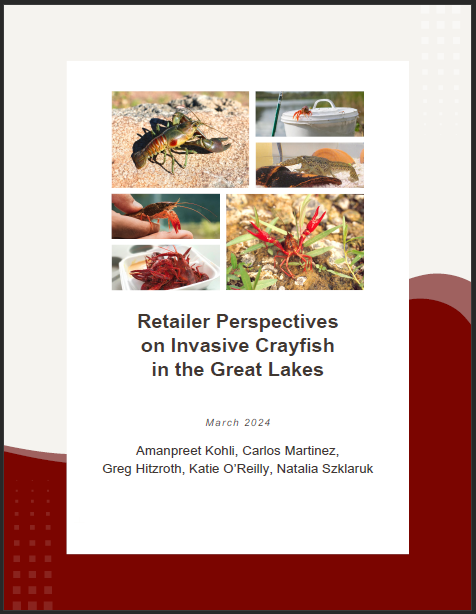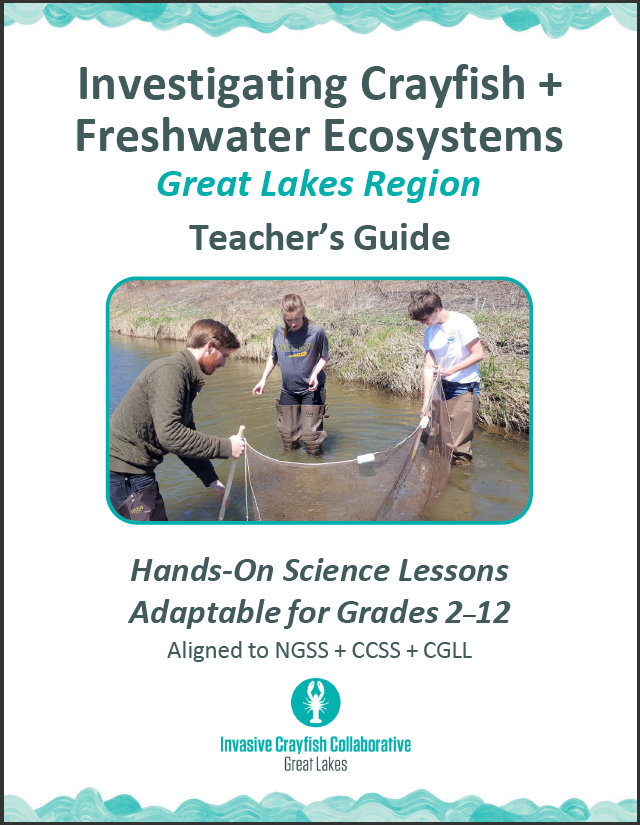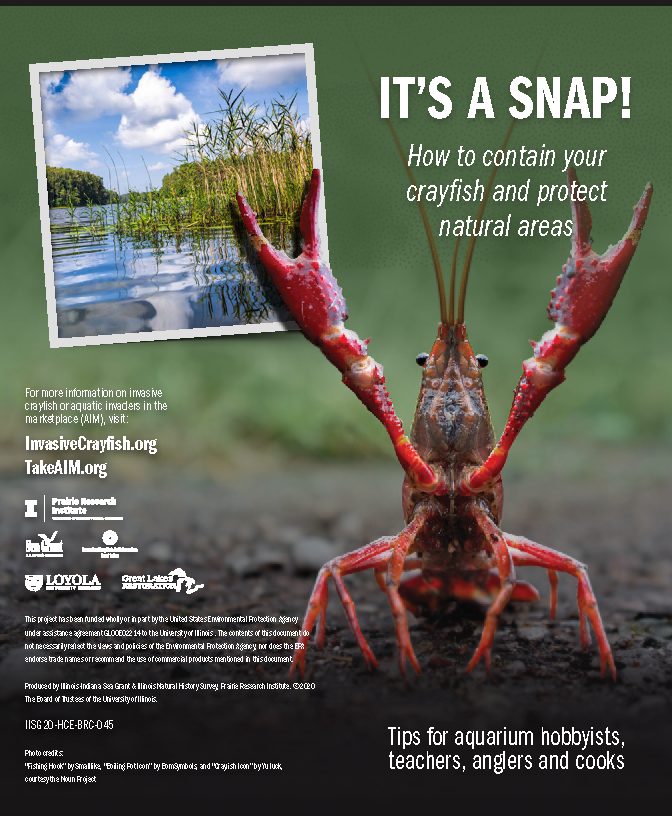Results
Year: 2025
The use of live crayfish in classrooms has been identified as a pathway for the introduction of invasive crayfish into our local waterways. To address this issue, the Investigating Crayfish and Freshwater Ecosystems curriculum was developed to teach students about Great Lakes ecosystems, the significance of native crayfish, and the ecological threats posed by invasive crayfish. It contains nine lesson plans aligned to Next Generation Science Standards, Common Core State Standards, and Center for Great Lakes Literacy Principles. The curriculum is best suited for students in grades 6-12 but offers numerous adaptations/extensions to meet the divergent needs of students in grades 2–5.
This document is available on the Invasive Crayfish Collaborative website: https://invasivecrayfish.org/crayfish-curriculum/

File Type: pdf
File Size: 739.54 KB
Year: 2024
Invasive crayfish pose a significant and ongoing threat to aquatic ecosystems in the Laurentian Great Lakes (GL) region. Coordination and communication among crayfish stakeholders are crucial for effective management. The Invasive Crayfish Collaborative (ICC) brings industry, science, and land management stakeholders together to enhance the management of invasive crayfish in the GL. To systematically guide the direction of the ICC and help facilitate the coordination of research, collaboration, and outreach, a five-year strategic plan was developed. This plan, informed by data from ICC surveys, workshops, and external feedback, outlines priority projects designed to equip stakeholders and partners with the necessary resources to effectively tackle the challenges presented by invasive crayfish. This plan plays a key role in highlighting the collective vision for crayfish management and ultimately contributes to the protection of native species and preservation of our aquatic ecosystems.
Download File

File Type: pdf
File Size: 2.21 MB
Year: 2024
Invasive crayfish represent an ongoing threat to aquatic ecosystems in the Laurentian Great Lakes region, and one of the major pathways of introduction is through the sale of live organisms to consumers (i.e., organism-in-trade pathways). This study investigated the live trade of crayfish in the Great Lakes region through a survey of crayfish retailers to understand sale and utilization of crayfish, as well as retailer sentiments about conservation and environmental stewardship. A database of 617 retailers across eight Great Lakes states was compiled and 123 retailers were contacted for the survey. Sixteen retailers who sold crayfish through the aquarium and bait trades completed the survey. Findings revealed that retailers rely on their wholesalers for information about crayfish, signaling a critical need for increased outreach efforts directed towards these suppliers. Moreover, retailers expressed a need for clear and consistent communication regarding regulatory changes. The results underscore the importance of effective communication and education within the crayfish supply chain to mitigate the risk of future invasive crayfish introductions in the Great Lakes region.
Download File
File Type: pdf
File Size: 1.62 MB
Year: 2021
This is a wallet card-sized brochure that will be distributed to boaters and anglers by Illinois Conservation Police Officers. The brochure contains Illinois’ aquatic invasive species laws and additional recommended actions these audiences can take to prevent the spread of invasive species.
Download File
Year: 2018
Invasive crayfish pose a substantial threat to aquatic habitats in the Great Lakes Region because of their ability to reduce habitat quality and dramatically alter aquatic food webs. Currently, efforts to prevent the introduction and spread of invasive crayfish consist largely of reducing the size of existing populations and encouraging people to refrain from releasing crayfish into new bodies of water. The ICC focuses on improving upon our collective management and outreach capabilities.
For more detailed information, visit Invasive Crayfish Collaborative
Page 1 of 3
Note: Some older Illinois-Indiana Sea Grant publications have not yet been restructured into ADA compliant formats. We are actively working on this. If you are having difficulty accessing a particular item in one of our databases, please contact iisg@purdue.edu with the name of the item and its URL for further assistance.






